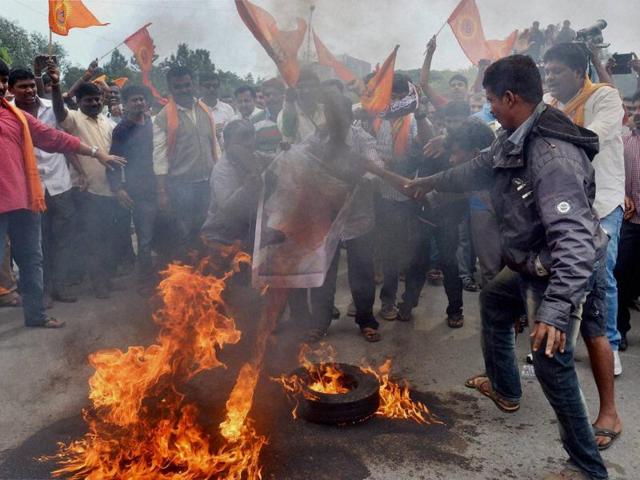Understand Tipu as historical figure, don’t use him for politics
It is a pity that the mere expression of a view on a historical figure can generate spiralling social reactions in India. Right-wing groups seem unwilling to debate issues with civility.
A controversy over Tipu Sultan, the 18th century ruler of Mysore, has emerged in Karnataka over the state government’s decision to celebrate the ruler’s birth anniversary.

Playwright Girish Karnad’s comments that Tipu would have enjoyed the status of Shivaji had he been a Hindu and his alleged remark that Bengaluru’s international airport should have been named after Tipu have sparked outrage.
Mr Karnad received a death threat which said he “will meet the same end” as the murdered scholar MM Kalburgi while the BJP MP from Mysore received death threats for opposing the celebrations.
It is a pity that the mere expression of a view on a historical figure can generate spiralling social reactions in India. Right-wing groups seem unwilling to debate issues with civility. State governments can deter vigilantism by taking swift action on death threats to writers and unravelling conspiracies behind murders like that of Kalburgi — but are not doing so.
In the absence of an effective State response, groups feel free to intimidate and use flawed representations of historical figures to fight contemporary communal battles. Tipu appears to be the new Aurangzeb for stoking social tensions and there’s regrettably little space for a nuanced understanding of the ruler. Tipu perpetrated violent excesses but he was hardly alone in doing so at the time.
It is, in any case, improper to judge figures of the past by canons of the present and outrageous to put pressure on minorities now through a skewed understanding of a past ruler. It is a pity that British propaganda about Tipu at the time now shapes how many think about him today. As historian William Dalrymple pointed in a 2005 essay, the British had an interest in painting him as an “intolerant bigot” to drum up a case for conquest.
Tipu was, in fact, “one of the most innovative and far-sighted rulers of the pre-colonial period” who understood British designs on India and, as a “modernizing technocrat” used advanced Western weaponry to fight them. Tipu destroyed temples in lands he conquered but protected and generously supported those within his domain.
Overall, his reign was much more textured than Right-wing fanatical portrayals now allow. The real nationalist thing to do is to advance a truer understanding of Tipu as a historical figure, rather than use him for dangerous political agendas.



